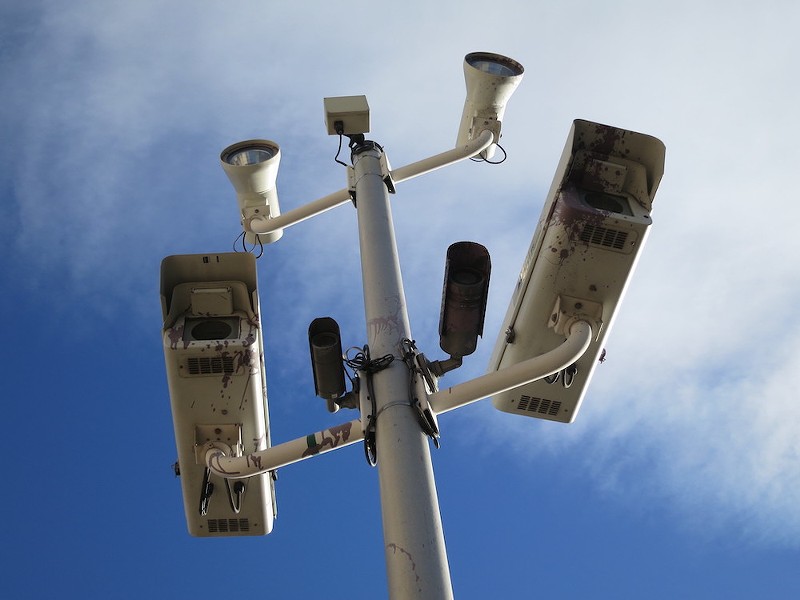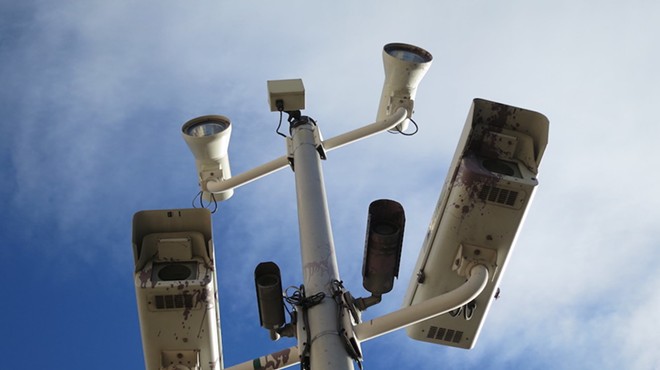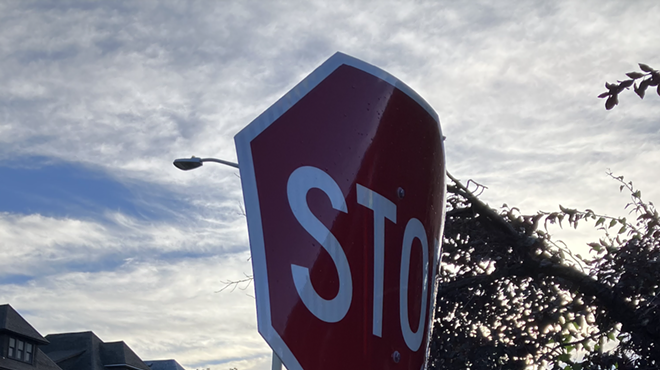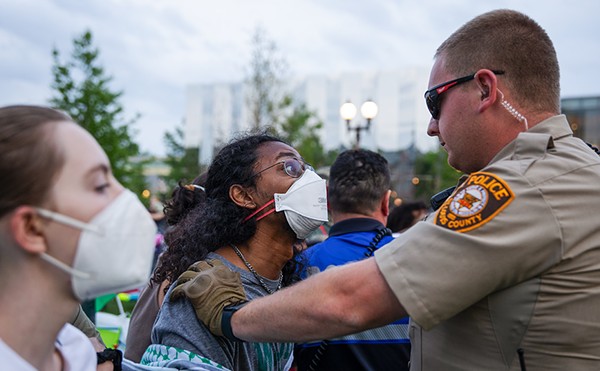
This column was originally published on the St. Louis Insider Substack.
Imagine you started a business with this simple formula for success: The more people break the law, the more money you make.
Should we entrust you with the task of enhancing public safety? Arguably not.
But get ready to say hello again to the “automated traffic enforcement” industry.
City officials led by Mayor Tishaura O. Jones held a press conference Monday to announce plans to bring back red-light and speed cameras. These have been rebranded as “automated traffic enforcement” devices, owing in no small part to the angry snarls elicited reflexively by any mention of “red-light cameras.”
St. Louis officials have the best of intentions here. They’re responding to widespread public disgust over some recent high-profile tragedies caused by wild and dangerous driving. There’s plenty of circumstantial evidence of the problem: Any of us who drive frequently in the city have seen it with our own eyes.
Third Ward Alderman Shane Cohn has gamely authored a draft resolution that attempts to address past concerns over the greed, civil liberties and racial disparities that plagued prior efforts. He told me he was a “reluctant” sponsor who had “vehemently opposed” cameras in the past but was hopeful that the city could craft a better way forward.
But none of that fixes the fatal design flaws of what passes for “best practices” nationally today. In the standard industry model, companies receive a cut of the revenues that are generated by the red-light and speeding violations they detect.
The more violators the cameras catch, the more profit for the companies. Any reduction achieved in traffic violations constitutes a hit to the bottom line.
Corollary to that: The industry’s undignified history of investing in lobbyists to oppose new safety legislation intended to reduce traffic violations (with the unintended consequence of trimming industry bottom lines). Present “best practices” in outsourcing traffic management overlook the detail that better safety is bad for business.
Yellow-light management is Exhibit A. Many studies have documented that lengthening the time of yellow lights — but not overdoing it — can substantially reduce the number of red-light running violations and intersection accidents. Here's a nice read on the topic.
Take a wild guess at what industry has frequently found itself accused of doing just the opposite, which would be shortening those yellow-light intervals and just increasing the number of violations racked up by its cameras. Why yes, it’s some of the city’s future partners in crime prevention.
Jones stated this week that traffic cameras have been “proven” to be effective in other cities. That may be. They’ve also been proven to be disastrous in other cities. This is by no means a matter of settled law or politics.
Unless and until the city can remove the perverse incentives for vendors to profit in direct proportion to the amount of revenue generated by traffic tickets, the model is a non-starter. Now, if the city’s RFP provided for a flat-fee arrangement under which companies would be paid — with no performance incentives — based upon the number of traffic devices they install and operate, they might make sense.
But something tells me there wouldn’t be any takers for that arrangement. I’d be happy to be proven wrong.
Also, I’m not buying that city officials — present or future — can be counted upon to refrain from finding higher and better uses for future ticket windfalls. Cohn’s draft legislation addresses that subject reasonably, but that’s hardly predictive of real-world events.
Now, I know some will argue, “We’ve got to do something to fix the city; even a lousy idea is better than doing nothing.” That’s a common refrain and, in some contexts, reasonable.
This isn’t one of those cases. The solution isn’t even a solution: To the extent a spike in wild driving afflicts the city — a national problem by no means limited to St. Louis — the culprits would hardly be deterred by tickets and fines.
Conservative local attorney Bevis Schock, with whom I customarily disagree a lot, made a great point to me this week: “We are living in a time of desperate degradation of human civility on the road. The people who are causing the accidents by running the red lights don’t care because they’re defined by their lack of civility.”
And on a more practical note related to the mechanics of punishing offenders: “The guy that’s causing the problem doesn’t care because he probably stole the car.”
Perhaps that’s a bit overstated but it gets to the heart of the matter. Even if police can clear the legal hurdles of identifying through facial recognition the person who was driving the car — and accounting for Cohn’s proposal that driver education be offered as an alternative to paying large fines — there’s no way to make the system just.
Red-light violations and speeding bring with them points on one’s driver’s license. That’s among the requirements of the 2015 Missouri Supreme Court decision that at least temporarily gave the traffic camera industry quite a haircut.
People with the means to hire a lawyer will do so to have the tickets plead out so they’re reduced to non-point violations. People on the opposite end of the economic spectrum will likely ignore the tickets altogether.
As usual, the folks in the middle will take the brunt. If they cannot afford to hire lawyers, they’ll likely pay the $100 fine (or whatever amount), inequitably affecting their modest budgets. And of course, the entire system will disproportionately land upon people of color because that’s what the criminal justice system does.
So, sorry I’m not ready to jump on this particular bandwagon. I always hate being soft on crime.
But maybe this time it’s because I’m not getting a cut of the action.
Ray Hartmann is the founder of the Riverfront Times. This column was originally published on his Substack St. Louis Insider and is reprinted with his permission. See RayHartmann.Substack.com to subscribe.
Follow us: Apple News | Google News | NewsBreak | Reddit | Instagram | Facebook | Twitter | Or sign up for our RSS Feed







